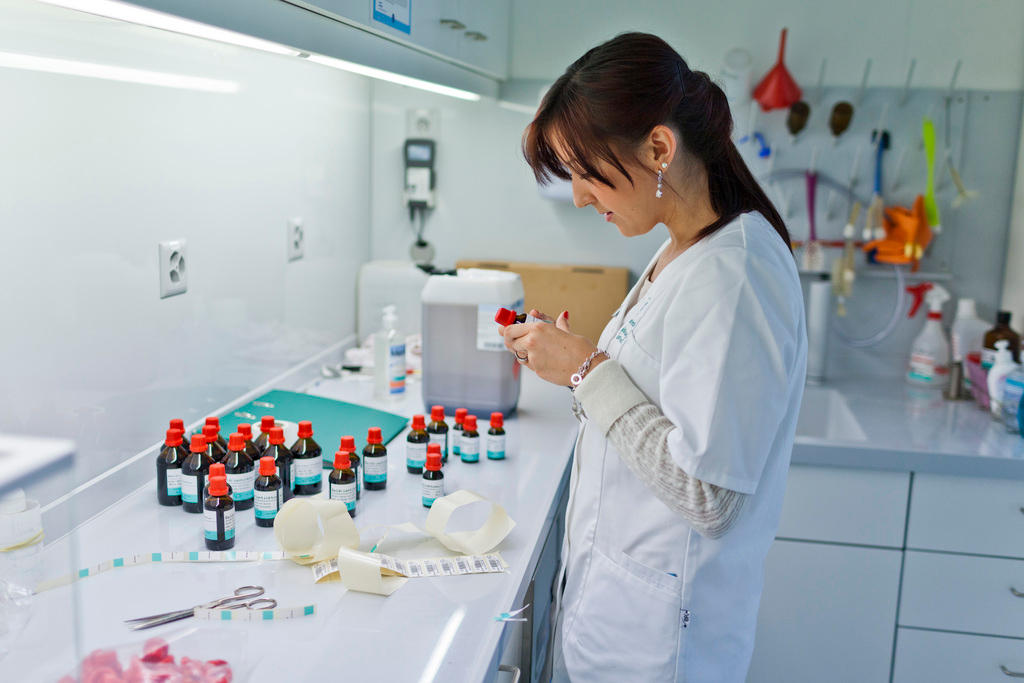
Pharmacists asked to inform on suspected bomb-builders

Swiss pharmacies have been placed on alert to lookout for any potential terrorist activities, either in customers’ actions or purchases.
If someone displays suspicious behaviour in a pharmacy, for example paying cash for an unusually large amount of certain substances, the member of staff has been asked to provide the authorities with as many details as possible.
Chemicals such as nitrates and hydrogen peroxide are found in disinfectants, bleach, fertilisers or weed-killers and, in large enough quantities, can be used to build explosives.
Pharmacists in the European Union have been obliged since 2014 to report suspicious behaviour or purchases. The Swiss government, fearing non-EU Switzerland could be seen as a soft touch by potential terrorists, has now asked the justice ministry to come up with regulations to limit the trade of so-called precursor substances: those that can be abused for other purposes, such as drugs or, in this case, explosives.
In September, the Federal Office of Police (Fedpol) organised a round table for representatives of various industry branches to discuss how such chemicals could be regulated in Switzerland and how their abuse could be hampered.
“The branches expressed their openness to making their members aware of the risks posed by precursor substances regarding explosives,” Fedpol spokeswoman Lulzana Musliu told swissinfo.ch on Monday.
In an information leaflet recently sent to Pharmasuisse, the industry umbrella organisation, Fedpol asked pharmacists to be vigilant and gave tips for spotting suspicious behaviour. For example, someone could have criminal intentions if, among other things, they appear nervous, pay in cash, want to buy chemicals in large quantities or in an unusual combination, or refuse to say what they were for.
The leaflet also listed 15 precursor chemicals, such as sulphuric acid and hydrogen peroxide.
Stay safe
“The points of sale can report suspicious activity concerning precursor substances to a Fedpol registration point with the aim of uncovering possible abuses at an early stage,” Musliu said.
Staff who work in pharmacies, chemists or other retail outlets were told not to put themselves in danger but to turn on the security camera, make as many mental notes about the person as possible and to keep objects that the person touched – in order to find traces of DNA.
The Swiss cabinet has proposed that the severity of the law should correspond to the substance’s concentration: a low concentration should not be subject to any restrictions. In addition, the law would apply only to private individuals and not professionals such as farmers.
The EU limited the sale of precursor substances in 2014. This was prompted by, among other things, the attacks in Norway in 2011 by Anders Breivik, who used fertiliser as a precursor substance.
Do you agree that pharmacists should inform on customers? Should this be obligatory? Let us know.

In compliance with the JTI standards
More: SWI swissinfo.ch certified by the Journalism Trust Initiative





























You can find an overview of ongoing debates with our journalists here . Please join us!
If you want to start a conversation about a topic raised in this article or want to report factual errors, email us at english@swissinfo.ch.